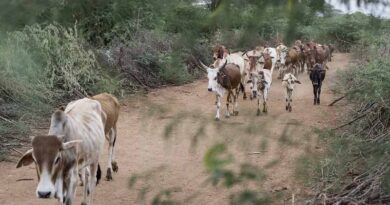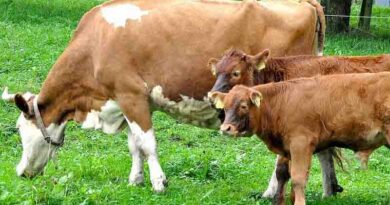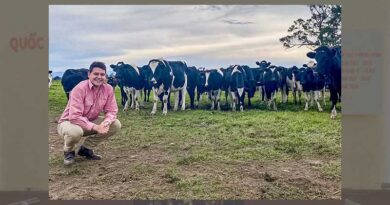USDA’s Agricultural Research Service Honors Scientists of the Year
07 April 2022, US: Spiegal’s research develops and evaluates strategies to increase sustainability of beef and dairy production systems across entire supply chains. Her work applies the concept of “telecoupling,” or relationships between systems over long distances, to solving supply chain problems in beef and dairy systems.
Spiegal co-leads the “manureshed” initiative within the USDA’s Long-Term Agroecosystem Research (LTAR) network, bringing together multi-disciplinary collaborators in the United States and Canada. The manureshed uses her concepts of telecoupling to recycle excess nutrients associated with livestock production, minimizing manure transport distance from barn to cropland while maximizing environmental and socioeconomic outcomes.
ARS is honoring four other Area Early Career Research Scientists. They are:
- Bradd Haley, with ARS’s Environmental Microbial and Food Safety Laboratory in Beltsville, Maryland, for his research to characterize important features of human pathogens associated with food-producing animals.
- Joshua Lyte, with ARS’s Poultry Production and Product Safety Research Unit in Fayetteville, Arkansas, for creating a new research paradigm uniting the microbiome and poultry neurophysiology that advances antibiotic alternatives to reduce foodborne pathogen carriage, disease and production-related stress.
- Rebecca A. Schmidt-Jeffris, with ARS’s Temperate Tree Fruit and Vegetable Research Unit in Wapato, Washington, for her significant contributions to improving biocontrol in agricultural systems. Her research provides growers with information to choose pesticides that have minimal impact on predators, resulting in improving integrated pest management.
- Anna Testen, with ARS’s Application Technology Research Unit in Wooster, Ohio, for advancing specialty crop production domestically and abroad through research on plant disease detection and management strategies.
- The agency also announced its 2022 ARS Technology Transfer Award winner. This Award recognizes individuals or groups who have done outstanding work in transferring technology to the marketplace.
This year’s winner is the ARS Pennycress Researchers team. The team included researchers from ARS’s National Center for Agricultural Utilization Research in Peoria, Illinois, ARS’s North Central Soil Conservation Research Laboratory in Morris, Minnesota, and ARS’s Plant Introduction Research Unit in Ames, Iowa.
Also Read: TAFE launches heavy haulage Tractor Massey Ferguson MAGNATRAK in Maharashtra
The team led the advancement of pennycress, a winter annual oilseed crop from the Brassicaceae family, as a commerical crop in the United States. Researchers look to use its oil for the development of renewable fuels (aviation fuels). Because of the crop’s winter hardiness and shorter lifecycle, it has advantages over other oilseeds for off-season production during the Midwestern winter months.
Pennycress is domesticated to fit into the Midwest’s conventional agricultural system. ARS scientists worked with farmers and growers to demonstrate to them that pennycress can be added to their crop rotation without harming other crops.
With the use of Cooperative Research and Development Agreements (CRADAs) and Material Transfer Research Agreement (MTRA), ARS researchers developed methods and conditions obtaining not only oil in high yields from the seeds but also protein co-products with desirable functional properties.
Researchers also used the United States National Plant Germplasm System (NPGS) and the Germplasm Resources Information Network (GRIN) system to publicly release two new pennycress germplasms lines. This release allows parties interested in the advancement of pennycress to obtain seeds either for seed production or to use materials in their own pennycress breeding programs.















